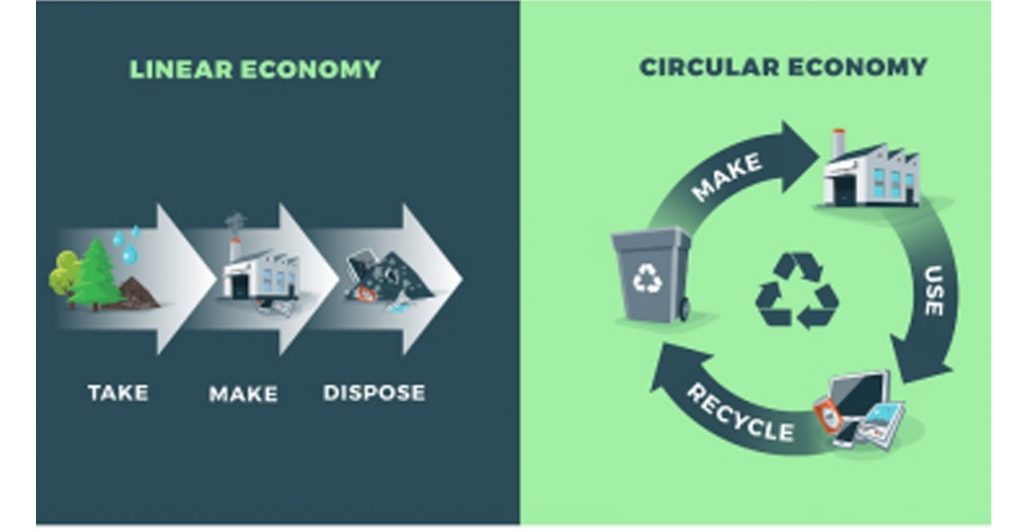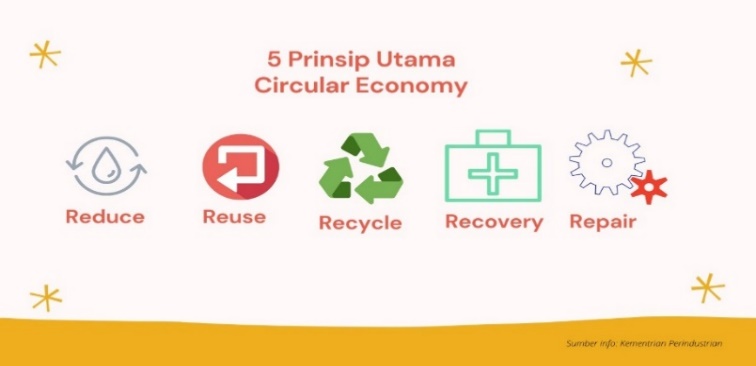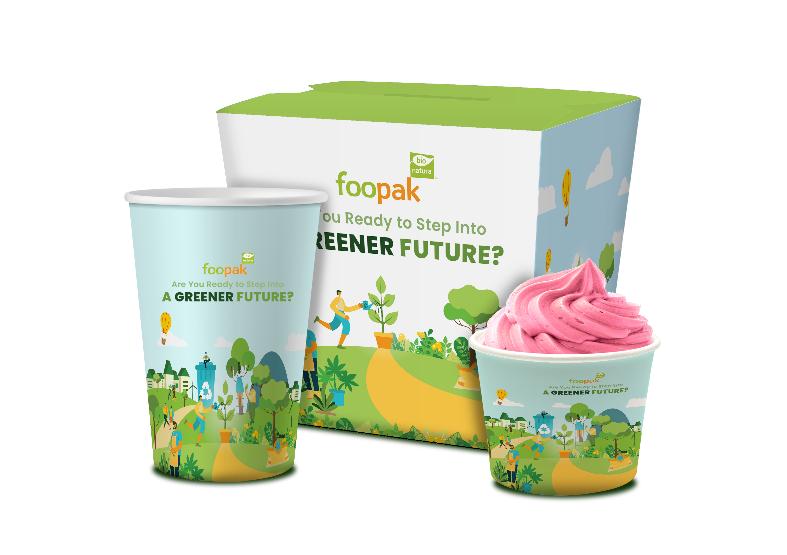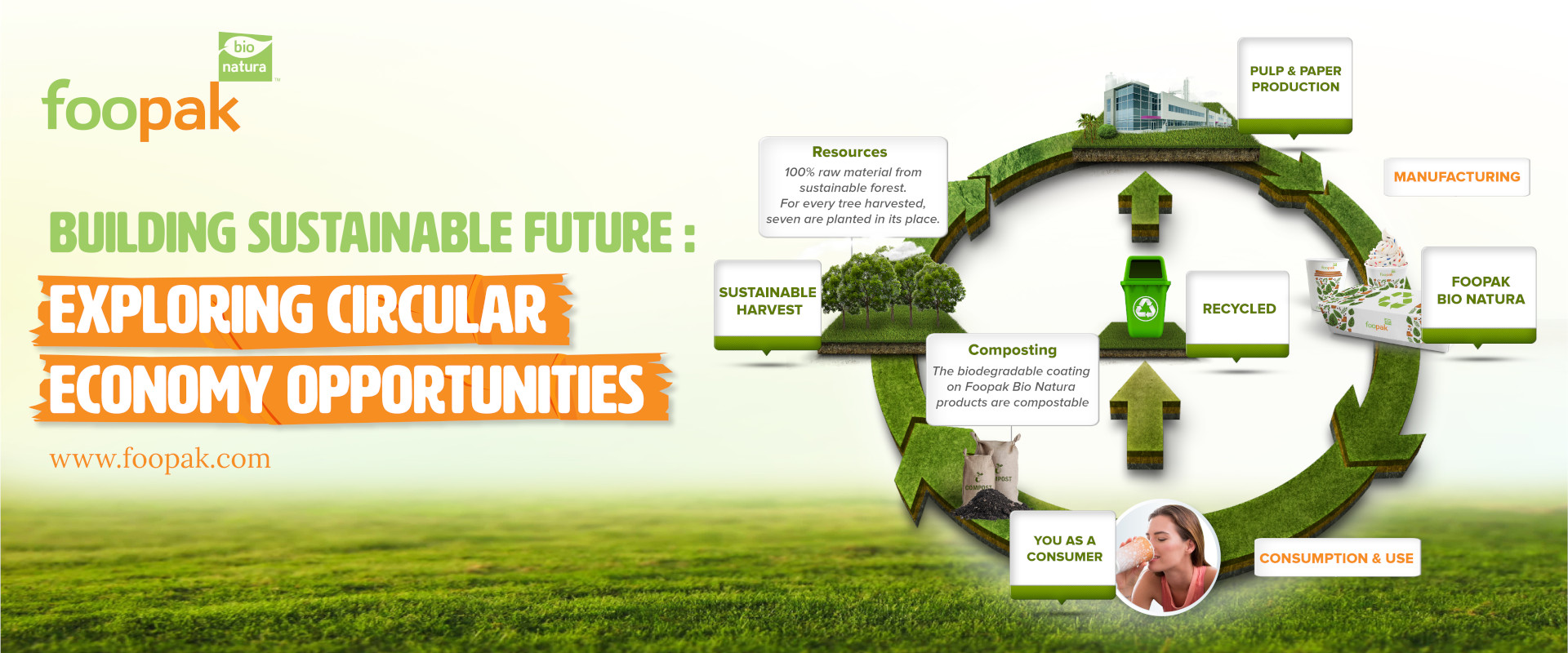As time passes, we are becoming increasingly aware of the fact that we live in a world with finite natural resources. Currently, human production and consumption continue to escalate, resulting in environmentally damaging waste in both the production and consumption aspects. One of the current solutions is the concept of a circular economy, which advocates for the efficient and responsible utilization of resources. This concept serves as a replacement for its predecessor, the linear economy.

According to the World Economic Forum (2022), the circular economy is an ecosystem model that seeks to extend the lifecycle of existing resources, raw materials, and products for as long as possible. The principles of the circular economy include waste and pollution reduction, maximizing the utilization of materials, and regenerating natural systems.

The circular economy is based on five core principles known as the 5Rs: Reduce, Reuse, Recycle, Recovery, and Repair. The principles guide the sustainable use of resources and materials. These five principles can be implemented by reducing the use of raw materials from nature (Reduce), optimizing the use of materials that can be reused (Reuse), utilizing materials derived from recycling processes (Recycle), recovering materials through reclaiming processes (Recovery), and repairing products to extend their lifespan (Repair). These five behaviors complement each other to create the concept of the circular economy.
Here are the positive impacts of implementing the circular economy:
- Waste Reduction: Currently, the world generates over 346,500 tons of plastic waste annually (World Bank, 2020). The circular economy’s emphasis on reuse, recycling, and material recovery helps reduce the volume of waste that would otherwise end up in landfills.
- Resource Efficiency: Limited natural resources are increasingly exploited in conventional linear economies. However, by implementing the circular economy, resource efficiency can be enhanced. For instance, reusing and recycling raw materials can reduce the need for extracting new resources such as metals, plastics, and wood.
- Greenhouse Gas Emission Reduction: The adaption of the circular economy contributes to reducing greenhouse gas emissions that drive climate change. In linear economy, production and waste disposal result in significant emissions. In the circular economy, principles like reuse, recycling, and recovery can decrease the demand for new production that contributes to emissions.
- Potential for Economic Growth: Ellen MacArthur Foundation reports that the implementation of the circular economy has the potential to increase the global Gross Domestic Product (GDP) by up to $1 trillion by 2025. This reflects significant economic opportunities that can be created through the transition to a sustainable economic model.
- Job Creation: The same report highlights that implementing the circular economy can create approximately 100 million new jobs worldwide. This is due to increased demand in sectors such as recycling, material recovery, product repair, sustainable design, and technology innovation that support the circular economy.
Example of implementing the circular economy in business is through the utilization of sustainable product design. In this case, a company designs products or materials that can be recycled and reused, thereby having a positive impact on the environment. In our daily lives, we can apply the principles of the circular economy by minimizing the use of single-use plastics and replacing them with paper alternatives.
Innovation and design drive companies to continuously create products that are more durable, easily recyclable, and sustainable in their use of environmentally friendly materials. This encourages the development of better solutions to address environmental challenges.

Asia Pulp and Paper, a part of the Sinarmas Group, produces an environmentally friendly paper brand, Foopak Bio Natura. Foopak Bio Natura meets food-grade standards and is a great example of the circular economy in action, specifically for food and beverage packaging. Foopak Bio Natura offers several eco-friendly advantages. It is free of plastic, recyclable, compostable, and can be repulped without the need for additional chemicals.
By implementing the principles of the circular economy through collaboration among the industry, government, and society, this program can quickly make a positive impact on the environment. Asia Pulp and Paper’s demonstrates how sustainable practices Foopak Bio Natura can be applied to meet packaging needs while reducing waste and promoting environmental responsibility.
The concept of the circular economy can be realized through the collaboration of industry, government, and society in its implementation. The industry can adopt responsible production practices and use environmentally friendly packaging. The government can enact policies and regulations that support the use of environmentally friendly and recyclable raw materials. Meanwhile, the society can actively participate by purchasing goods according to their needs and also considering their environmental impact.
Through innovation, collaboration, and a collective sense of awareness, we can pave the way for a more sustainable future by embracing the principles of the circular economy. Each and every one of us has a vital role to play in reducing waste and supporting these principles through simple actions like reducing consumption, recycling, and educating others.
By taking these steps, we can make a significant contribution to building a more sustainable and circular economy. This collective effort ensures the responsible use of resources and safeguards our environment for the well-being of future generations. Together, we can create a brighter and more sustainable future through the adoption of the circular economy.
The circular economy presents us with a unique opportunity to preserve the environment and achieve sustainable economic benefits. Let us join hands and work together towards realizing the vision of a circular economy, paving the way for a better future for all. By embracing the principles of the circular economy, we can minimize waste, maximize resource efficiency, and foster innovation that supports environmental sustainability. Through collective efforts, we can create a thriving economy that not only benefits us today but also ensures a healthy and prosperous planet for future generations. Now is the time to seize this opportunity and embark on a journey towards a more sustainable and circular future. Let us join hands and work together towards realizing the vision of a circular economy, paving the way for a better future for all.
